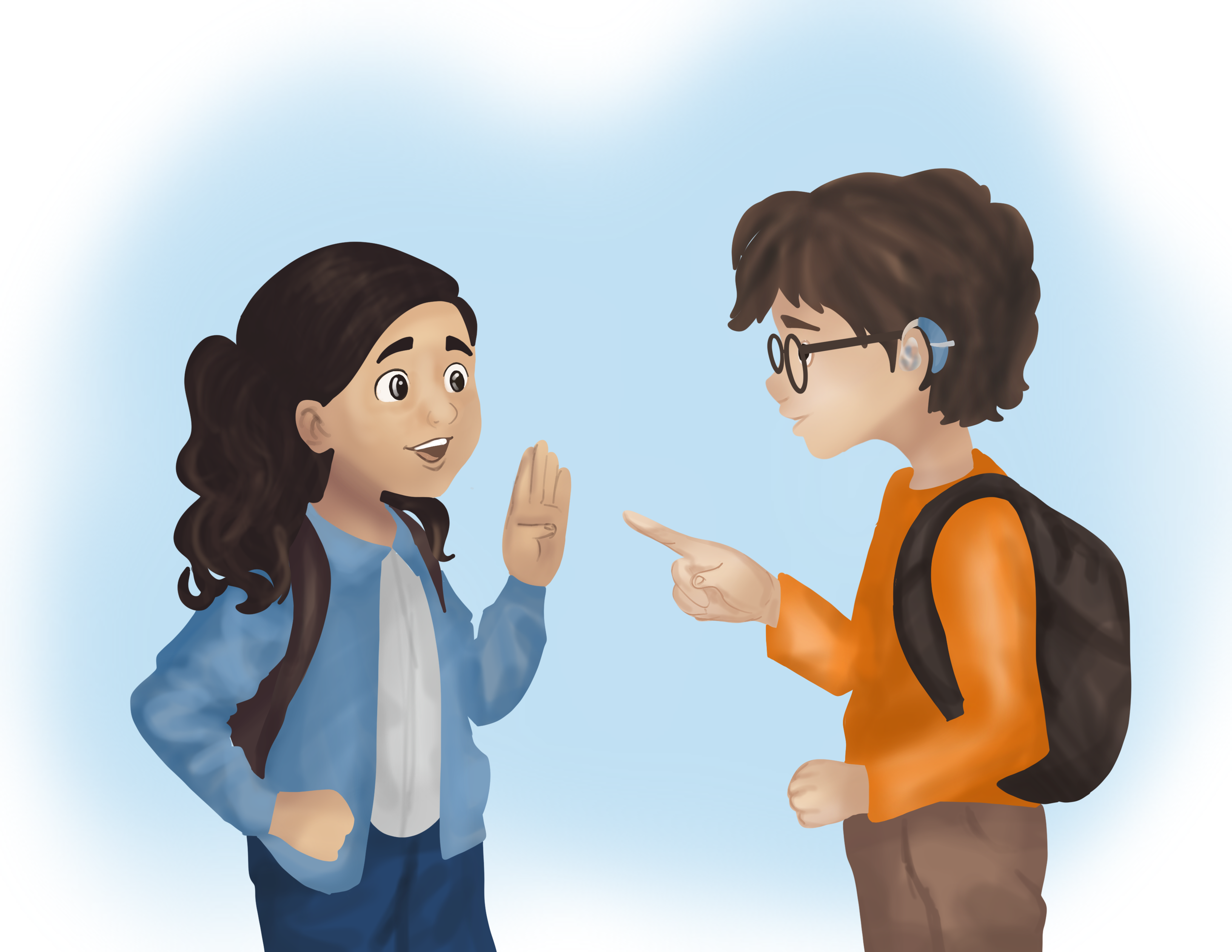Opinion | Normalize the abnormality of deafness
Hearing society in America minimizes Deaf culture and expects conformity to oral language. Though Deafness is uncommon, it does not denote inferiority and deserves appreciation and acceptance. Illustration by YANA SAMOYLOVA, Illustrator
Remember silent films from the 1900s? Imagine watching one without closed captions.
Did the actor say olive juice? No, probably “I love you.” Both phrases look identical, and the movie has dim lighting, so you can never be 100% certain. As the actor turns his head, everyone laughs, but you are unsure why. You can no longer see his face and are now incapable of even attempting to read his lips. With great frustration, you unwillingly crucify all hopes of learning what joke was stated.
This hopeless predicament is the striking reality for deaf individuals.
Deaf people are expected to understand and utilize oral communication despite lip-reading's immense difficulty, which is depicted by this anecdote. This lack of consideration for the needs of those incapable of hearing is propagated by the ignorance of Deaf culture.
Deafness must be accepted. Its abnormality should be celebrated.
American society deliberately forces Deaf people’s conformity to spoken language norms instead of respecting the use of American Sign Language (ASL). The gravity of this injustice is astounding, given that the skill of lipreading at that level is nearly impossible to achieve and rarely acquired.
Bridgette Mayse, junior political science major & business administration minor
Research by the National Deaf Children’s Society shows that “only 30% to 40% of speech sounds can be lip-read even under the best conditions.” Considering this statistic, it is idiotic that oralism–communication through oral speech and lipreading– is more commonly taught to deaf children than sign language.
ASL is frequently considered an illegitimate language. However, ASL is nationally recognized as a formal language with its own syntax according to the National Science Foundation. The dismissal of signing can be seen in universities, such as USC, failing to recognize ASL as a foreign language.
So why does oralism’s popularity preside over ASL? Oralism relinquishes hearing people’s responsibility to learn sign language, and it holds deaf people solely accountable for learning a new method of communication.
Despite the infeasibility and difficulty of lip-reading for deaf individuals, 72% of parents of deaf children forfeit communication with their own child by not learning to sign.
Many deaf children experience linguistic neglect and language deprivation because of their inability to learn oral speech and lack of family members who sign, which can stunt cognitive development when experienced for a long period of time.
The majority of Americans lack rudimentary education of Deaf culture. For example, Americans seldom know that “Deaf” spelled with a capital “D” refers to a deaf individual who signs and is involved in the Deaf community. When “deaf” is spelled with a lowercase “d,” it refers to a person who is incapable of hearing but may not sign..
The Deaf community possesses unique cultural norms, like name signs, long goodbyes and bluntness. Deaf culture is founded on the belief that the lack of hearing is not a disability. Deaf community members are so proud of their language that hearing enhancement surgeries — such as cochlear implants — are often more controversial than desirable because they “reject” Deafness.
Why does Deafness remain abnormal in America?
Mainstream media neglects promotion of the Deaf community because of its rejection of “victim” and “inferior” statuses despite being a minority group. The chasm between Deaf and hearing communities must be bridged by replacing the label of “disabled” assigned to Deaf individuals with “equal.”
Blind preference for oralism forges language barriers between hearing parents and deaf children. Promotion of Deaf culture is needed in order to restore broken families and inhibit language deprivation. The language barrier between hearing and deaf people must fall.
Deaf voices — and hands — matter.


